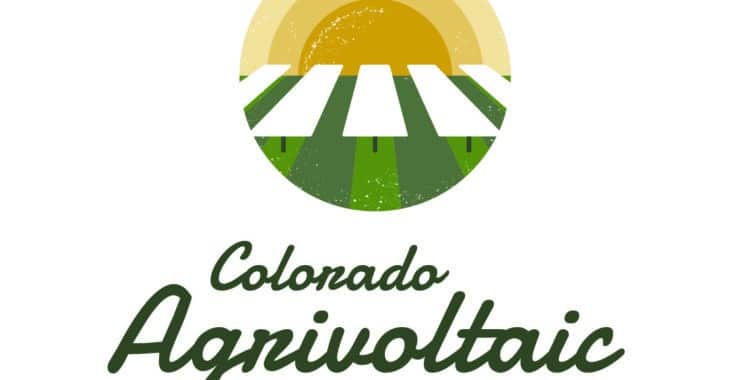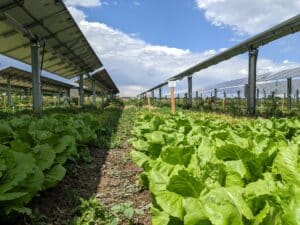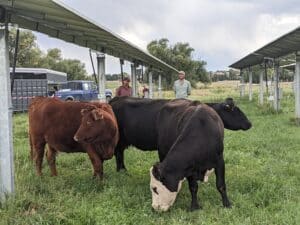


Friday, August 25th, 2023
What is “agrivoltaics?” Simply, it is using the ground around solar panels for growing plants or for grazing animals. The premier agrivoltaic organization in the country, and the only site in Colorado growing crops at scale, is right here in Boulder County. The Colorado Agrivoltaic Learning Center opened as the nonprofit, public education arm of Jack’s Solar Garden in Longmont. According to founder Byron Kominek the organization began with the thought, “How do we do better with our land?”
Several years ago, Byron moved to his family’s land in Longmont. He wanted to create a “better connection with the land, [his] culture, and the community.” His thought was to install a solar array to generate electricity while keeping the land useful. By planting around and under the solar panels, Jack’s Solar Garden does just that. The solar panels move throughout the day to provide strategic shade for the plants and the people working on the land. The use of shade can prolong the growing season, decrease water usage, and allow some plants to grow that would otherwise not thrive in our climate.
“There is a better way to build solar,” says Byron. He invites everyone to come see how it is possible. The Colorado Argivoltiac Learning Center hosts workshops, events, and tours of the property. The property is open for pre-planned tours throughout the growing season for school field trips, policymakers, and anyone who wants to see agrivoltaics in action. To date more than 3,000 people have toured the property.
Byron hopes the Colorado Agrivoltaic Learning Center will be an inspiration to others. Already, it has helped inspire legislation, which Governor Polis signed at Jack’s Solar Garden. By collaborating with other ecological organizations and by working with legislators who want clean energy, more progress can be and will be made. In Byron’s view “degrading the land for the benefit of the environment doesn’t make sense.” The implications of solar energy must be considered. We must “keep the land useful, active and prosperous for our society,” Byron explained. It is possible to do both: create clean energy and keep the land prosperous.
Learn more about agrivoltaics by touring Jack’s Solar Garden, attending an upcoming event, like a farm to table dinner on September 16, or visit the website coagrivoltaic.org to watch educational videos.

